We may receive a commission when you use our affiliate links. However, this does not impact our recommendations.
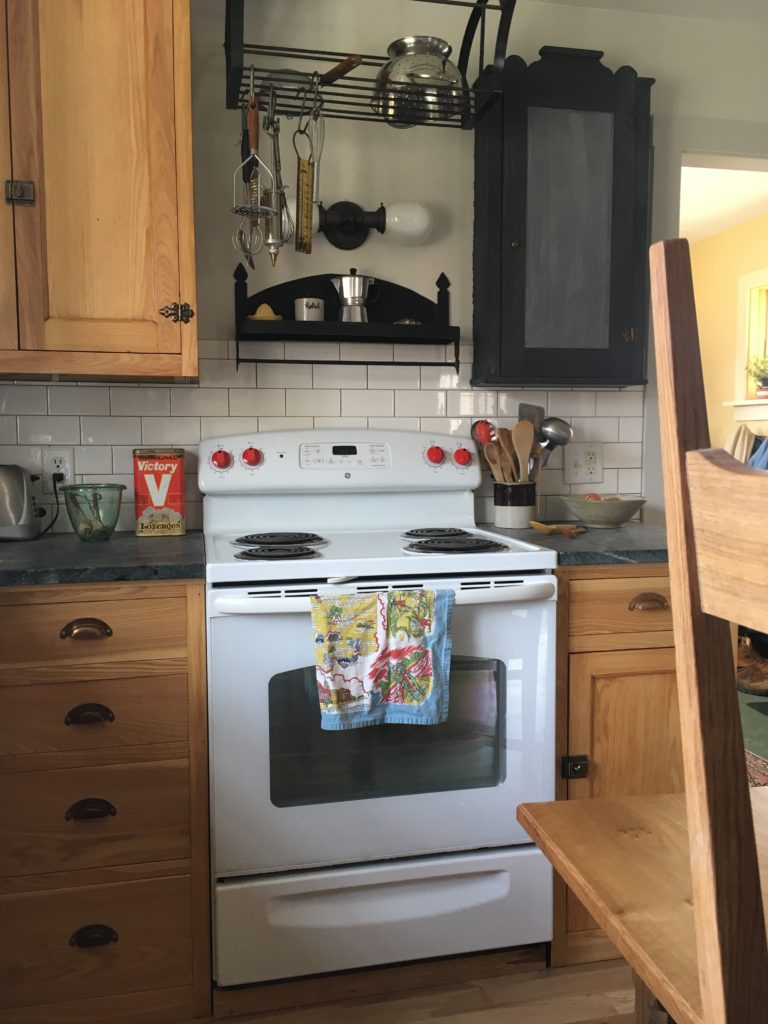
Yes, I know about the raggedy paint line where the spice cabinet meets the wall. So much for the special painter’s tape I bought. There’s no substitute for a steady hand. And if the red knobs remind you of cicada eyes, you’re not alone.
Warning: This post falls under the category “First World Problems.”
This week we continue the kitchen design theme, but with an affordable stove upgrade instead of cabinets. Full disclosure: we’re talking about the most superficial aspect of a stove, its appearance. Yes, the stove is a tool – a conventional necessity for cooking food (at least in modern kitchens, which don’t typically revolve around a wood-burning hearth). Sure, you could fry bologna on a portable hotplate (I hate to admit that my best friend and I used to eat fried bologna sandwiches circa 1967) or cook gourmet spiced pork ribs in a microwave. You can even use a Crock Pot to bake a cake.
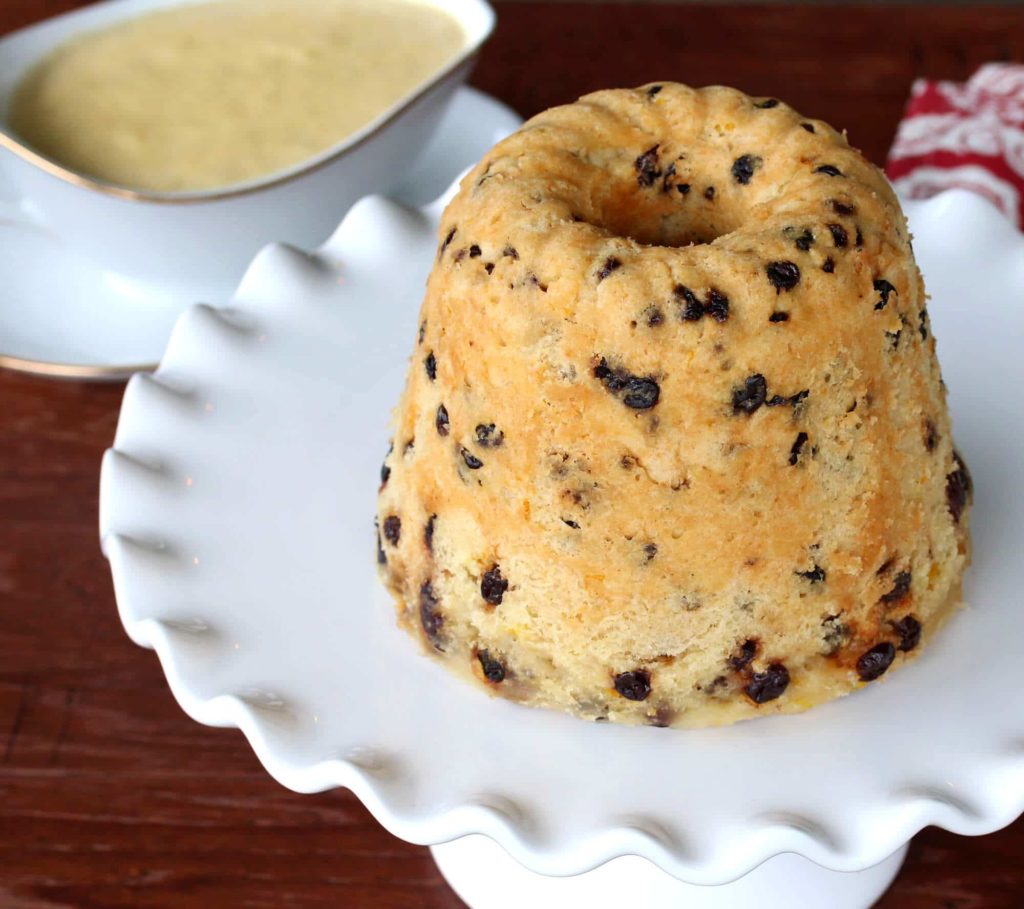
I’m not so keen on the idea of baking cake in a Crock Pot, but I’d eat slow-cooked spotted Dick any day.
Such culinary contortions notwithstanding, a kitchen is generally deemed incomplete without a stove.
For most of my life, I’ve bought the least expensive stove available, because that was all I could afford. Early on, when I lived in England, this meant finding a secondhand gas cooker through the classified ads in the local paper. Those ranges of my youth worked fine, even if I had to make allowances, such as one case where the actual oven temperature reached 425 degrees when the control was set for 350. (Yes, I know I could have had that repaired, but I could not afford to pay a repair person at the time.) The stove in our home today, a GE 30″ freestanding electric range, dates back to when the house was a rental. The house is in a rural area without access to natural gas, and we have not (yet) installed a propane tank. It works fine for our needs. But its appearance is the definition of generic.
Our kitchen is very much part of the public space in our house. The stove is visible from the front door, and since the dining table is in the kitchen, I can rationalize putting a bit more care into such frivolous details than I might if the kitchen were merely a work-room, like those postwar “laboratories” (literally, work-rooms) known as Frankfurt Kitchens, which were originally designed by Austria’s Margarete Schuette-Lihotzky.
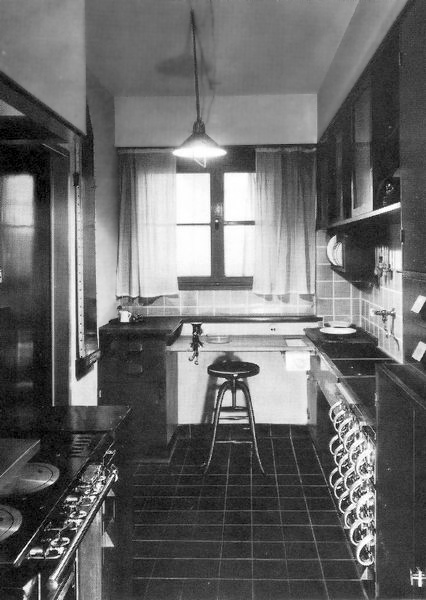
Frankfurt kitchen Public Domain, https://commons.wikimedia.org/w/index.php?curid=551167. Occupying the smallest possible footprint, with a place for everything and everything in its place, the Frankfurt Kitchen was a working space designed to function efficiently.
Oh, who I am kidding? I’d care about how my kitchen looked even if it were “just” a work-room.
My fantasies involve restored antiques. Every so often a kitchen client installs a restored stove in the midst of cabinets I’ve built, so I can get my kicks vicariously.
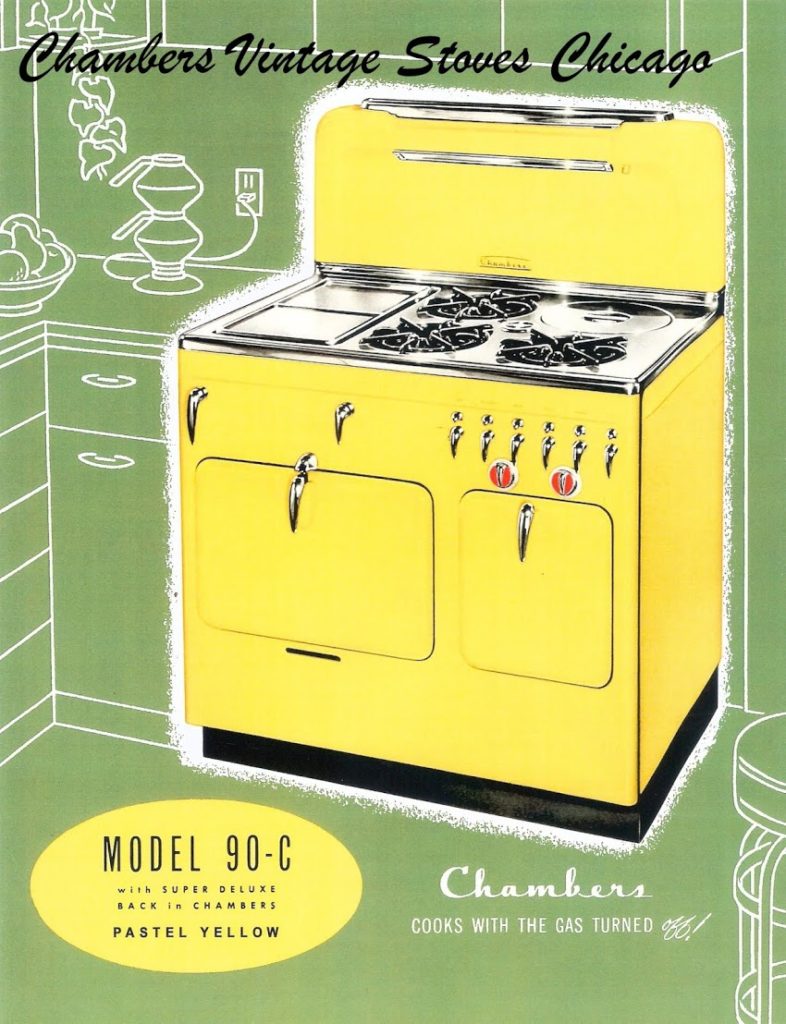
Vintage Chambers illustration from Chambers Stoves Chicago, a site well worth a look. The owner of the business, Joe Oliver, restores these and other stoves. http://chambersstoveschicago.blogspot.com/
One variation on this fantasy involves a retro-style stove such as this one from Big Chill Appliances.
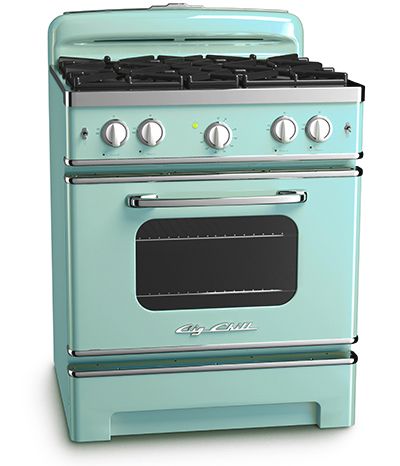
Big Chill, which started out producing refrigerators, now has a mouth-watering range of stoves in colors that make my heart ache.
The commercial style of a Viking would be equally welcome. But back on Earth, I’m living with that generic GE — and don’t get me wrong; I don’t take a functioning stove, or the electricity that powers it, for granted. So in the process of reworking our kitchen recently, I made the stove’s appearance a little less vanilla by changing the control knobs.
Wilson Elements sells replacement knobs that can be used on a variety of appliances. They come in several finishes and are a cinch to install (though the instruction leaflet could be clearer).
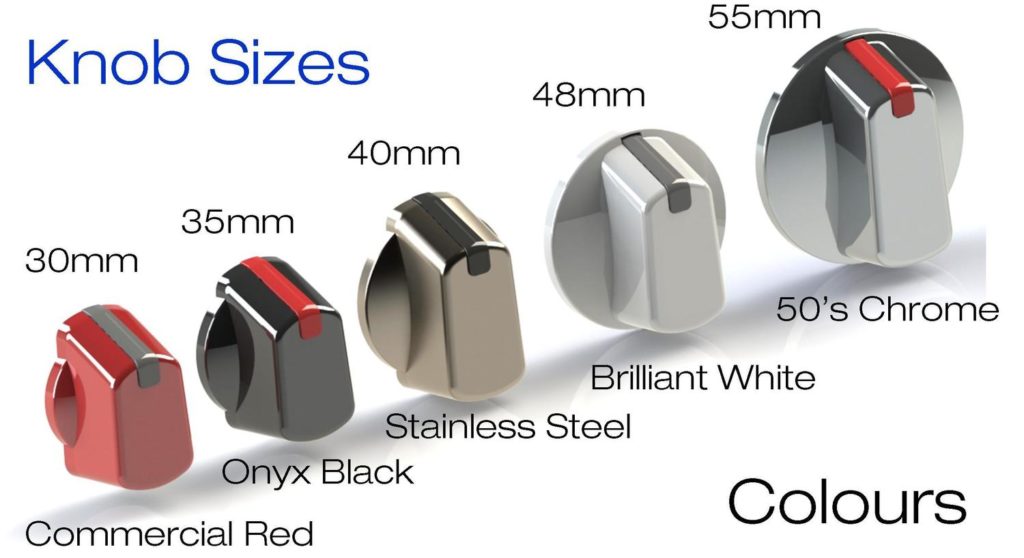
Universal appliance knobs from www.wilsonelements.net/universal-appliance-knobs
Simply remove the knobs by pulling them toward you.
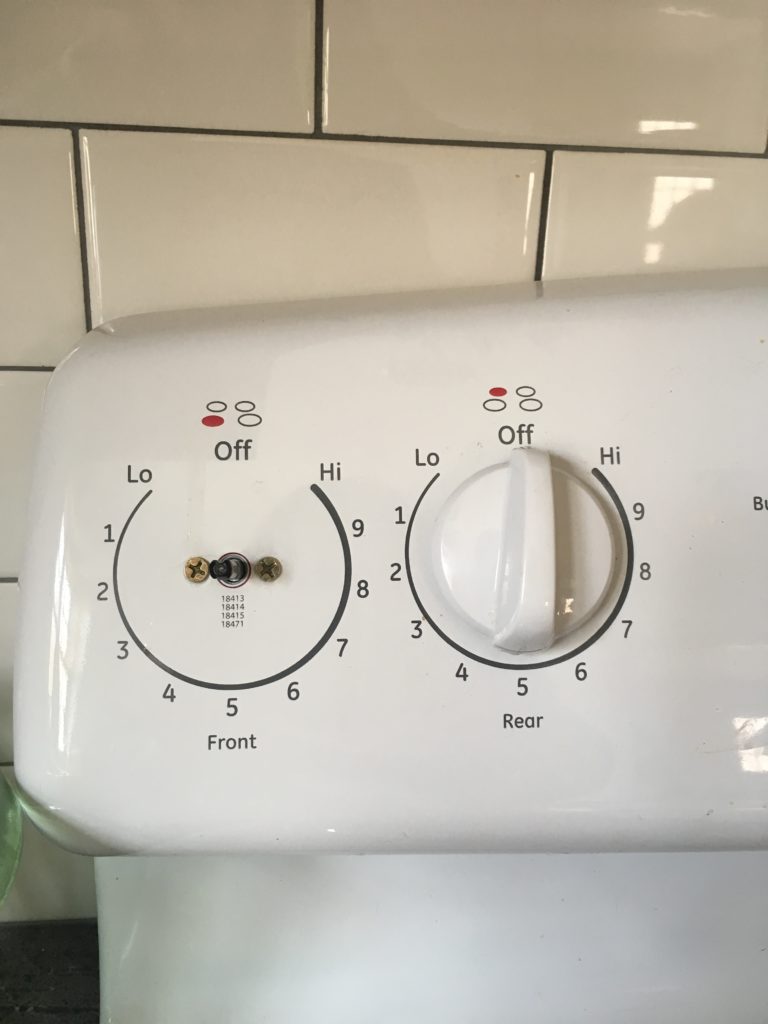
The original control knob, right, with the actual control switch, left
This is a good time to clean the area behind and around the knobs, if you don’t do so regularly.
Next, determine which insert will fit your stove’s control switches. The knobs come with inserts in several sizes. When you’ve selected the correct size, determine which end should be inserted into the replacement knob; the instructions indicate the options, which will produce differing degrees of protrusion from the stove panel.

The insert has a knurled end and a thinner extension.
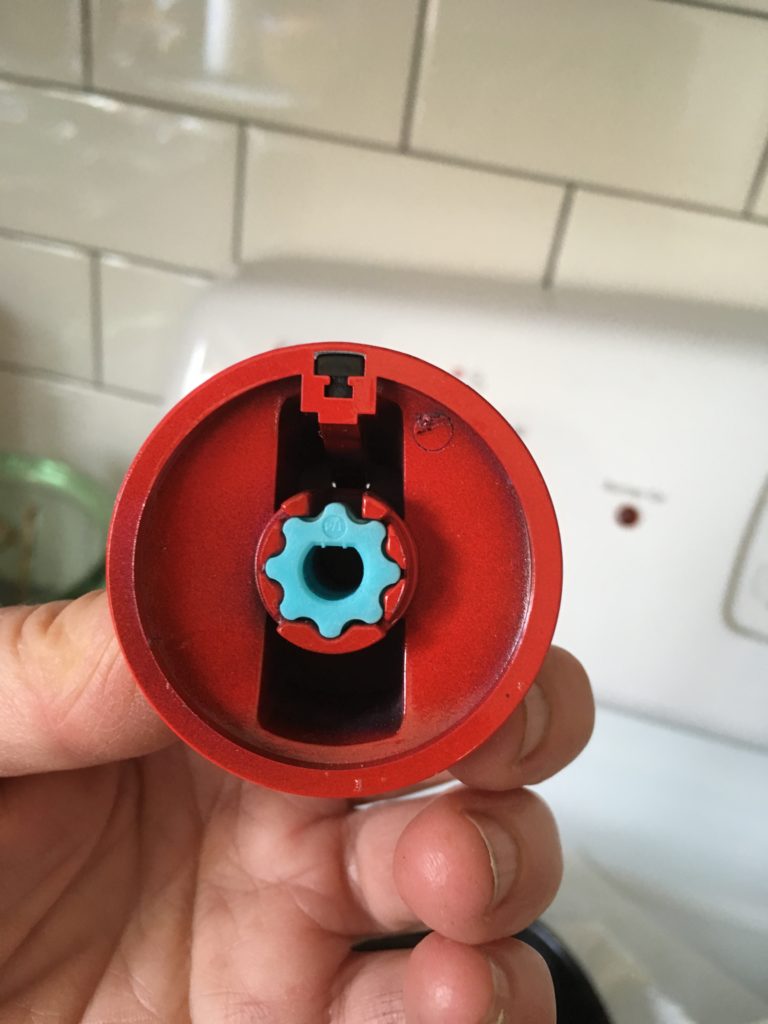
The blue part is the insert that will engage the control switch. I wanted minimal protrusion for the new knobs, so I inserted the thin end first.
Make sure that you align the flat part of the insert with the flat side of the control switch so that the new knob will point to “Off” when the burner is turned off. (Don’t ask how I learned this.)
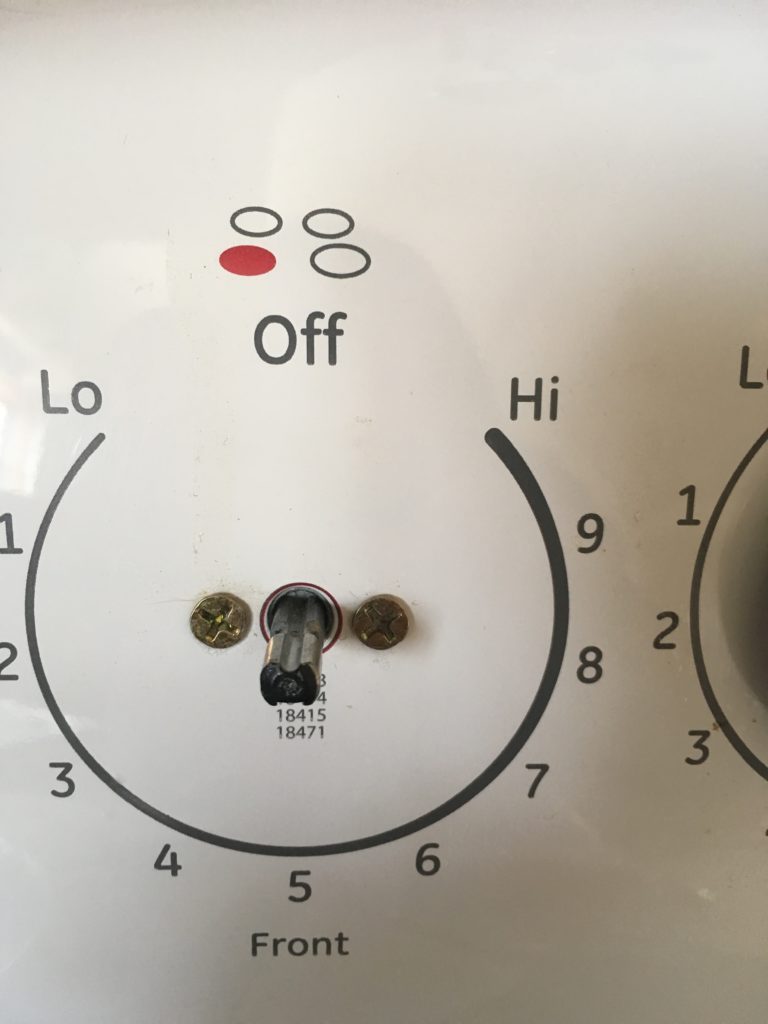
This view of the control switch shows the flat part (top and bottom) that needs to align with the flat section of the new knob’s insert.
The next step in our stove’s transformation will, I hope, involve a new oven door handle. I’ve begun experimenting with a shop-made version, because I haven’t found anything suitable online or at our local restaurant equipment supply house. Stay tuned.
– Nancy Hiller
 Available from ShopWoodworking.com
Available from ShopWoodworking.com
Making Things Work:
Tales From a Cabinetmaker’s Life
By Nancy R. Hiller
Honest, earthy, and wryly humorous, this collection of tales drawn from more than 30 years of experience at shops in England and the United States is thought-provoking as well as entertaining. We follow Hiller as she stumbles into furniture making after dropping out of Cambridge University, finds employment in one, then another, English workshop, grapples with monotony, sexism, and self-doubt, attempts escape, and eventually makes peace with her vocation.
Purchase your copy!
Here are some supplies and tools we find essential in our everyday work around the shop. We may receive a commission from sales referred by our links; however, we have carefully selected these products for their usefulness and quality.










The state of Indiana official souvenir dish towel is a nice touch too. Every kitchen needs some kistch.
When I first saw the red knibs in pic #1 I thought, “Hmmm, that brightens things up”. Then I read the caption, busted out laughing, and now I can’t stop seeing cicada eyes.